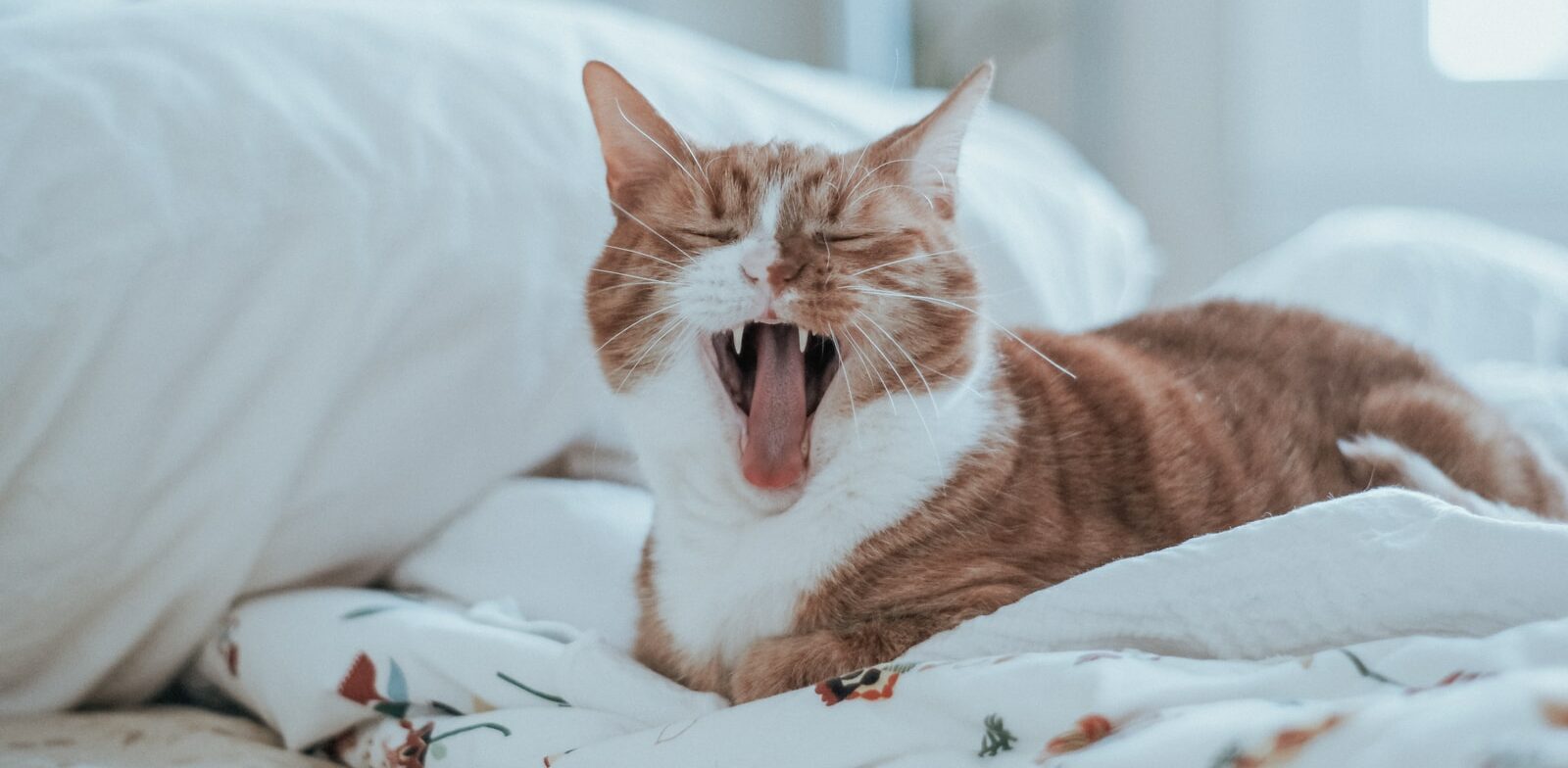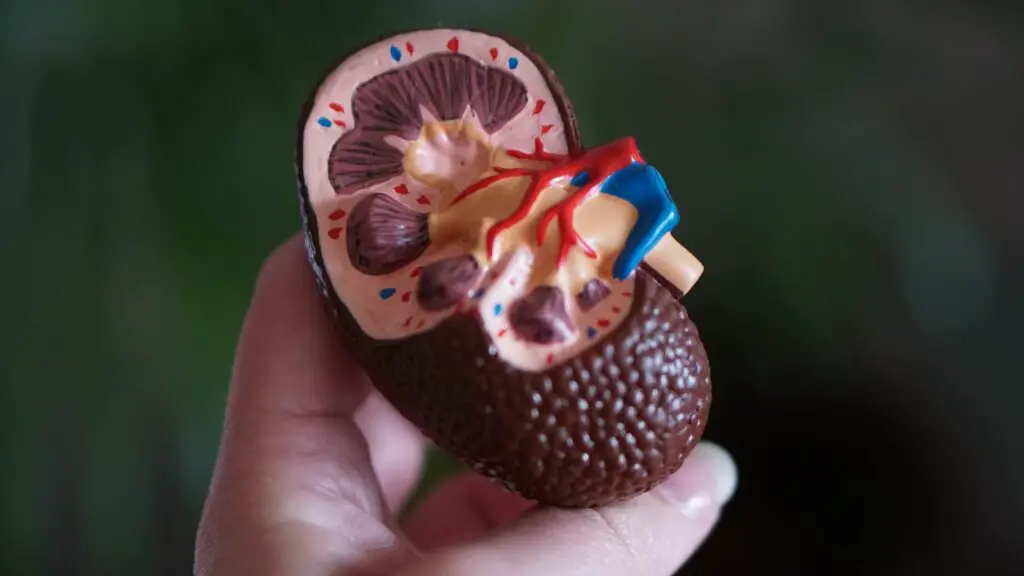
Key Points
- While occasional bad breath in cats is not a cause for concern, you need to take it to a vet if your pet has chronic halitosis, as this could be a symptom of several serious health conditions.
- Some causes of stinky breath in cats include gum disease, dental issues, diabetes, liver, kidney, and digestive tract problems, oral tumors, and more.
- The best way to treat your cat’s foul breath is to have the pet examined by a vet who can diagnose its condition and prescribe appropriate treatment.
- The best way to prevent bad breath in cats is to brush your feline’s teeth daily with a feline toothbrush and toothpaste. You can also give your cat dental chews to help clean its teeth and keep its breath fresh.
Do you love petting your cat but hate having your nose be anywhere close to its head? If so, your pet may be suffering from serious health issues! According to Eric Davis, DVM, a fellow of the Academy of Veterinary Dentistry, a cat’s breath is not supposed to smell bad. So while it’s absolutely normal for cats to occasionally suffer from bad breath, if the issue occurs constantly, it’s time to visit a vet and figure out what’s causing it. And in the meantime, this article will explain the reasons for bad breath in cats and ways to treat the issue and prevent it from occurring in the future.
Table of Contents
Why Does My Cat’s Breath Stink?
Dental Issues

If you’ve ever seen a toothpaste or mouthwash commercial, you probably just how much bacteria there is in our mouths. Unfortunately, the same is true for pets. If this bacteria is not removed with regular brushing, it can lead to significant plaque buildup on the teeth. This oral plaque will interact with saliva and eventually turn into tartar. As a result, the pet may develop painful periodontal disease, resulting in bad breath, loose teeth, and inflamed and bleeding gums. If you notice that your cat has difficulty eating, suffers from inflamed gums, and drools excessively, you need to take it to a vet as soon as possible.
Gingivitis And Stomatitis
Gingivitis is a condition that causes gums to become inflamed, while stomatitis describes inflammation of the mucous tissue inside the mouth. Felines often develop these conditions as a result of bacteria buildup, allergic reactions, and viral infections.
Oral Tumors
Mouth tumors are another possible cause of halitosis in cats. This condition requires professional diagnosis and treatment.
Foul-Smelling Food
If your cat often eats foods that have a strong unpleasant odor, it could result in bad breath that seems chronic. Observe your pet’s breath in connection to the food it’s eating. If you only notice bad breath after giving your cat fish or organ meat, it’s likely harmless.

Respiratory Infections
Many cats will develop bad breath when they are sick with a cold or another upper respiratory tract infection. This often happens due to nasal congestion. Bad breath will generally go away on its own once the cat shakes the cold.
Changing Teeth
If your cat is still very young, its breath may begin to stink around the time when its teeth change. This usually occurs when the kitten is around 4 months old. If your cat’s changing teeth are causing it to suffer from halitosis, you can expect the problem to go away on its own within a few weeks.
Foreign Objects In The Mouth
If a piece of food or a foreign object such as a piece of string becomes stuck in your cat’s mouth, it will begin decomposing. This will result in significant bacterial growth in the mouth, leading to the surrounding tissues becoming inflamed and infected. As a result, the pet’s breath will become increasingly more foul.
Kidney Disease
If your cat’s breath recently started smelling of ammonia or urine, you need to take the pet to a vet ASAP, as this is a common sign of kidney disease. When kidneys stop functioning properly, they can no longer eliminate waste from the blood. As a result, ammonia and urea will accumulate in the blood, posing a significant threat to your pet’s health.

Diabetes Mellitus
If you notice a fruity odor to your pet’s breath, this is also a reason to take it for an urgent visit with the vet, as this could be a sign that your pet is suffering from diabetes mellitus. Over the course of this disease, some of the cells in the pet’s pancreas will fail to regulate blood sugar levels. As a result, the sugar in the cat’s blood will break down into ketones, and the pet will go into ketoacidosis, a severe condition that will cause the pet’s breath to smell fruity.
Gastrointestinal Disorders
Felines can also suffer from halitosis caused by intestinal obstructions or frequent vomiting. If you suspect that your pet may have developed an obstruction in its bowels, you need to seek emergency veterinary attention.
When Does Bad Breath In Cats Require Treatment?
If your cat has developed chronic bad breath, you need to have the pet examined by your vet. However, if you observe any of the symptoms below, you should take your pet in for an urgent appointment:
- Urine or ammonia odor – this can indicate kidney failure;
- Fruity or sweet-smelling breath – this can mean that your pet is suffering from diabetes;
- Vomiting or yellow eyes and gums – these are common signs of liver issues;
- Brown teeth and inflamed gums – if left untreated, these conditions may cause your pet to lose its teeth.
How To Fix A Cat’s Bad Breath?

If your cat’s bad breath is becoming a problem, you need to start by taking the cat to your vet for a thorough examination. You will save a lot of money and time by having a professional carefully examine the animal and determine the correct diagnosis and treatment. If your cat’s foul breath is caused by a serious health issue, the doctor will be able to create an appropriate treatment plan to improve your cat’s quality of life and maybe even save its life. And if your feline’s bad breath is caused by a less severe issue such as gum inflammation, the vet will be able to professionally clean your cat’s teeth and give you recommendations regarding proper oral hygiene that will help prevent the issue from coming back in the future.
Preventing Feline Halitosis
Brush Your Cat’s Teeth
The best way to prevent your cat’s breath from becoming unpleasant is to brush its teeth regularly. You can find special feline toothbrushes and toothpaste online or purchase some at your vet’s office. It’s important to start brushing your cat’s teeth early on in the cat’s life so the pet can get accustomed to the procedure. But even if your cat is older, it cat probably get used to having its teeth brushed with a bit of patience from your end.

You can begin training your cat by letting it lick the toothpaste off your finger and then putting your finger inside its mouth and moving it around. Once the feline is comfortable with having your finger in its mouth, you can start putting a special feline toothbrush on your finger, covering it with toothpaste, and brushing your cat’s teeth.
Ideally, you should brush your cat’s teeth daily but if this is not possible, try to conduct this oral hygiene procedure at least a few times a week. By brushing your cat’s teeth regularly, you’ll be able to keep bacteria at bay and prevent plaque and tartar buildup in the pet’s mouth.
Schedule Regular Teeth Cleaning
Just like humans, cats need regular dental cleaning. However, this procedure is quite difficult, and the cat will need to be put under general anesthesia to allow the vet to thoroughly examine and clean its mouth and teeth. This is why it’s recommended to have your cat’s teeth cleaned professionally once a year.

Change Your Cat’s Diet
Your vet may recommend changing your cat’s diet to alleviate its halitosis. Some pet food brands have special products that minimize plaque and tartar buildup. However, you should only switch your pet to one of these diets if your vet prescribes it.
Use Teeth-Cleaning Chews For Cats
You can also try substituting the treats you give to your cat with specialized dental chews that will clean its mouth and teeth and freshen its breath.
FAQ
Is it normal for a cat to have bad breath?
If your cat’s breath smells bad only occasionally, it’s completely normal. However, if your pet has developed chronic halitosis, it is definitely a cause for concern and a reason to make an appointment with your vet.
How can I get rid of my cat’s bad breath?
The best way to keep your cat’s breath smelling fresh is to brush its teeth daily. While your cat may hate this at first, the pet will get used to having its teeth brushed over time. Keep in mind that you need to use special cat toothpaste and toothbrush for this.
Why does my cat’s breath stink so bad?
Bad breath in cats can be caused by a variety of conditions, including gum disease, kidney and liver issues, diabetes, gastrointestinal problems, oral tumors, and more. If your cat’s breath smells bad all the time, you definitely need to have a vet examine it.
How can I keep my cat’s teeth clean without brushing?
Although regularly brushing your cat’s teeth is the best way to maintain its oral health, you can try giving it special pet food that will reduce bacterial growth and plaque buildup in its mouth. You can also purchase dental chews and treats to keep your feline’s mouth clean or take it for professional dental cleanings at your vet’s office.
Are there breath mints for cats?
No, there are no breath mints for cats. However, you can purchase some dental chew treats that may help keep your pet’s teeth clean and improve the odor coming from its mouth. However, if your cat is suffering from chronic bad breath, you need to take the pet to a vet, as this could be a symptom of a severe health condition.




